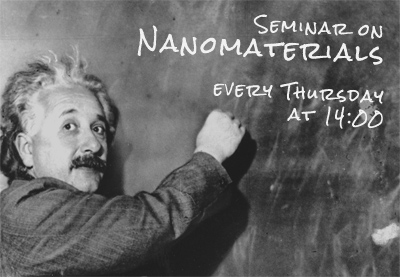Nanoseminar
Group of Structure analysis at the Department of Condensed Matter Physics
of Charles University and MGML has a pleasure to invite you to attend the seminar on nanomaterials: Physics, Technology, Applications
on 10th April 2025 at 14:00
at Faculty of Mathematics and Physics of Charles University, Ke Karlovu 5, 121 16 Praha 2
Lecture room F2
Alina Madalina Darabut
Department of Surface and Plasma Science, Faculty of Mathematics and Physics, Charles University
Structural Characterization and Functional Properties of Epoxy/Graphite Composites for Fuel Cell Bipolar Plates
Alina Madalina Darabut » Structural Characterization and Functional Properties of Epoxy/Graphite Composites for Fuel Cell Bipolar Plates
Department of Surface and Plasma Science, Faculty of Mathematics and Physics, Charles University
Location: F2
Bipolar plates are crucial components in proton exchange membrane fuel cells, directly influencing performance, cost, and weight. Polymer composite materials offer a lightweight, cost-effective alternative with tunable electrical, thermal, mechanical, and gas barrier properties. This study focuses on the development and characterization of epoxy resin/graphite composites for bipolar plates, investigating filler conductivity, polymer-filler interactions, and composite formulation strategies. The synthesis of thermally expanded graphite (TEG) is investigated, with a focus on temperature-dependent morphology, chemical structure, and electrical and thermal conductivity. An optimal expansion temperature is identified to maximize conductivity and structural integrity, enhancing material performance [1]. Surface chemical interactions between thermally expanded graphene oxide (TEGO) and the epoxy components (diamine hardener and epoxy resin prepolymer) are analyzed using spectroscopy techniques. The results indicate strong covalent interactions between TEGO and amino groups from the hardener, whereas interactions with the epoxy resin prepolymer are weaker [2]. Polymer composites incorporating single- and dual-filler systems are prepared, and the effects of filler percentage, type, size, and structure on composite morphology, percolation behavior, and electrical, thermal, and mechanical properties are studied [3]. A novel electrochemical gas permeability measurement method is introduced, enabling precise hydrogen and oxygen permeability quantification. Finally, polymer composite bipolar plates are fabricated and tested under proton exchange membrane fuel cell operating conditions, demonstrating promising performance.
Keywords: Polymer composites, thermally expanded graphite, interface reaction,
electrical conductivity, gas permeability, bipolar plates.
References:
[1] A.M. Darabut, Y. Lobko, Y. Yakovlev, et al., Influence of thermal treatment on the structure and electrical
conductivity of thermally expanded graphite, Adv. Powder Technol. 33 (2022) 103884.
[2] A.M. Darabut, Y. Lobko, M. Gamón Rodríguez, et al., Study of surface interactions between graphite oxide
and epoxy resin components, Under Review in J. Surf. Interfac. (n.d.).
[3] A.M. Darabut, Y. Lobko, Y. Yakovlev, et al., Effect of graphite fillers on electrical and thermal conductivity in
epoxy-based composites: Percolation behavior and analysis, Mater. Res. Bull. 183 (2025) 113186.
*corresponding author: e-mail: alinadarabut@gmail.com


